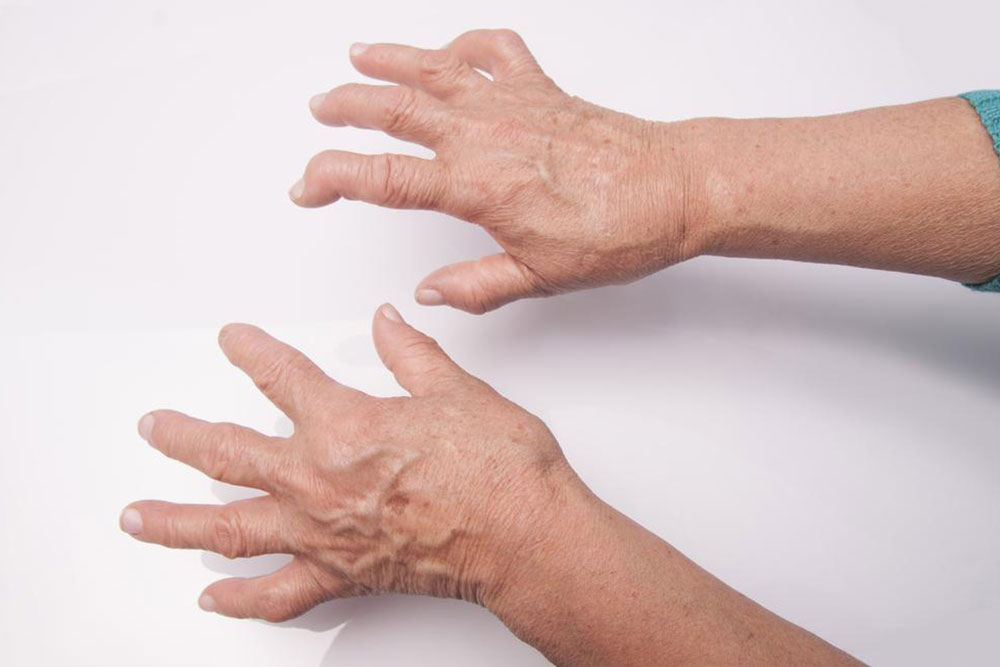Here Are A Few Things To Know About The Early Symptoms And Treatment Of Rheumatoid Arthritis
Here are a few things to know about the early symptoms and treatment of rheumatoid arthritis
Rheumatoid arthritis, also known as RA, is a type of inflammatory arthritis that leads to chronic joint inflammation in the knees, feet, hands, and fingers. If you have been diagnosed with RA or are suffering from rheumatoid arthritis-symptoms, it is important to know more about this disease at an early stage and consult a doctor.
It is an autoimmune disease in which the body’s immune system attacks the joints; this causes pain, swelling, and damage to the bone.

It can affect any gender or at any age. Studies suggest that in women, the symptoms manifest between the ages of 30 and 60 years. On the other hand, the symptoms may occur at a later age in men. Rheumatoid arthritis affects the joints on both sides of the body including both hands, wrists, and knees.
It is important to get treatment as early as possible when the symptoms first occur. Ignoring RA treatment can lead to severe health issues. High levels of inflammation can lead to various health problems throughout the body including the following:
- Blood vessels: RA can also cause the inflammation of blood vessels leading to damage to the nerves, skin, and other organs.
- Lungs: It may also cause lungs-related health issues such as inflammation which can lead to shortness of breath.
- Eyes: A person may experience dryness, pain, redness, sensitivity to light, and impaired vision
- Mouth: It may also lead to dryness and gum irritation or infection in the mouth.
- Skin: Rheumatoid nodules can also cause small lumps under the skin over bony areas.
Early symptoms rheumatoid arthritis
The following are some of the first symptoms of rheumatoid arthritis:
- Fatigue
- Morning stiffness
- Joint stiffness
- Joint pain
- Minor joint swelling
- Fever
- Numbness and tingling
- Decrease in range of motion
Fibromyalgia and rheumatoid arthritis symptoms
There are many people who are confused by assuming that RA and fibromyalgia are the same disorders, but this is not true. They both are quite different. Your doctor will let you know after examining you properly. Rheumatoid arthritis (RA) and fibromyalgia are two different health issues with some symptoms that are similar. Here are a few common symptoms:
- pain that is like a dull ache
- sleep disturbances
- fatigue
- depression and anxiety
RA is an autoimmune disease that causes the body’s immune system to attack the joints. Fibromyalgia is a disorder that leads to musculoskeletal pain and other prominent symptoms such as fatigue, sleeping problems, and problems with memory and mood. If you observe these symptoms, consult a doctor immediately.
Other rheumatoid arthritis-symptoms
Patients who have rheumatoid arthritis may experience different symptoms, including but not limited to the following:
- Difficulty in sleeping
- Chest pain when you breathe
- Loss of appetite
- General weakness
- Dry mouth
- Dry, itchy, or inflamed eyes
- Eye discharge
- Weight loss
What to expect from the doctor
If you are experiencing any of the above symptoms, you need to go to a doctor. There is no single test to diagnose RA; your doctor might recommend many tests to diagnose rheumatoid arthritis. A doctor cannot recommend any medicines based on early rheumatoid arthritis-symptoms. To diagnose RA, a doctor may recommend the following:
- A doctor will go through your medical history, along with that of your family.
- A physical examination so your doctor will know about joint tenderness, swelling, and pain.
- He may also ask for blood tests to check the kind of inflammation.
- An auto-antibody test will also be conducted. According to a study, about 80 percent patients suffering from RA have rheumatoid factor antibody.
- A doctor may suggest imaging tests including ultrasound to check for joint damage or inflammation.
There is a number of drugs available in the market for treating RA. Your doctor will recommend the right medicine based on the results of multiple tests. A doctor may prescribe common pain relievers such as Tylenol (acetaminophen) to alleviate pain. Non-steroidal anti-inflammatories (NSAIDs) such as Motrin/Advil and Aleve may be recommended to get relief from inflammation. Sometimes, surgery is also recommended if medicines are not effective. However, surgical procedures are usually the last options of any treatment plan.
It is advised not to ignore rheumatoid arthritis-symptoms if you experience any of the signs mentioned above. Your doctor will examine you properly and go through all the test results before starting any treatment. It is essential to treat RA as early as possible as it may lead to severe health issues as it progresses. The disorder can be debilitating and may cause a lot of discomfort along with disrupting daily day-to-day routine activities.




